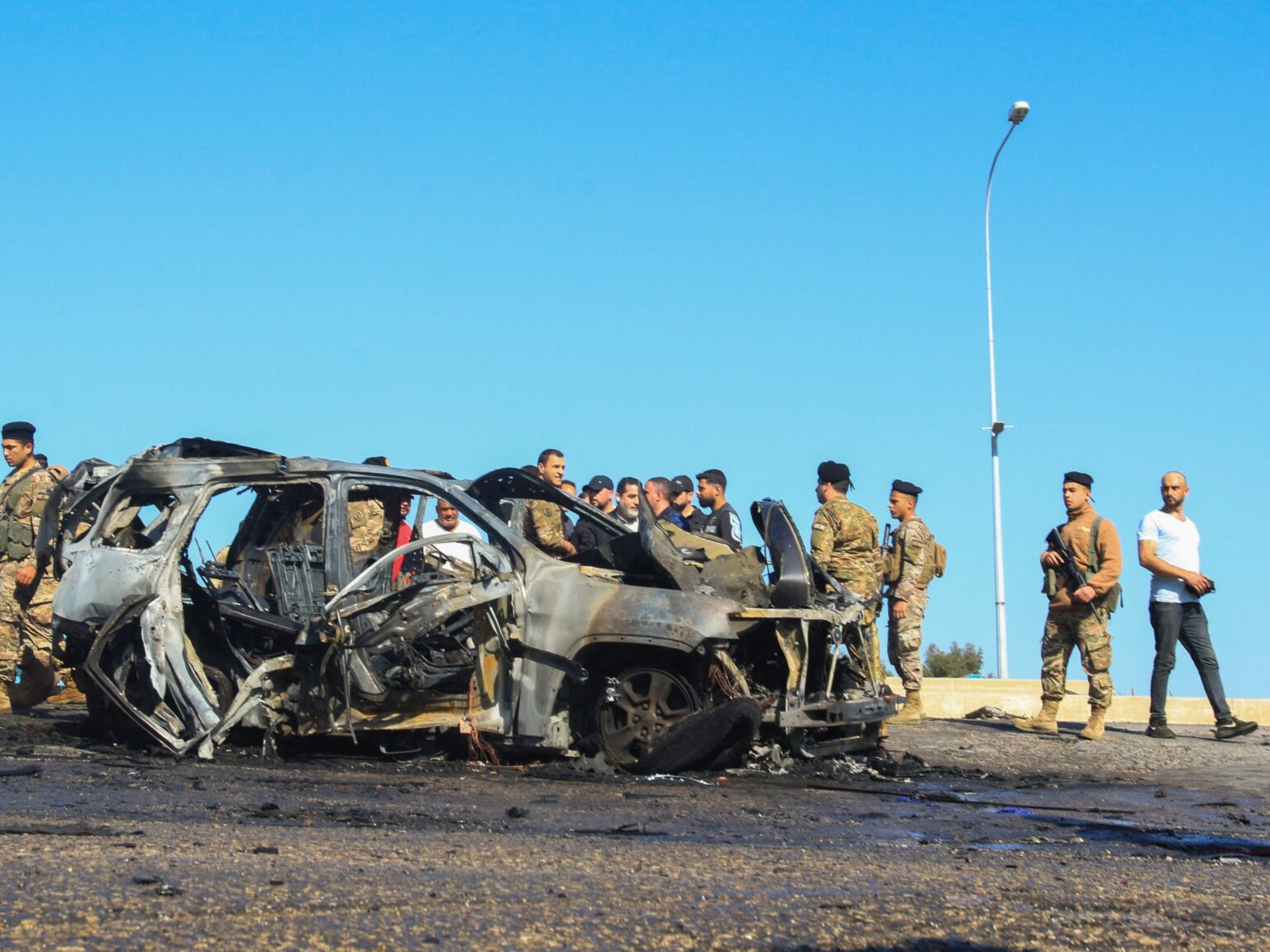Israel has continued to conduct near-daily strikes in Lebanon despite a ceasefire with Hezbollah last November.
Lebanon’s Health Ministry has said an Israeli strike on a vehicle near the southern coastal city of Sidon killed one person, with Israel announcing that an attack in the same area had targeted a Hezbollah operative.
Despite a ceasefire last November that sought to halt more than a year of conflict between Israel and Iran-backed Hezbollah, Israel has continued to conduct near-daily strikes in Lebanon.
“The attack carried out by the Israeli enemy against a car on the Sidon-Ghaziyeh road resulted in one dead,” a Health Ministry statement said on the fourth consecutive day of Israeli attacks in the south on Friday.
An AFP journalist said the Israeli attack hit a four-wheel-drive vehicle, sending a pillar of black smoke into the sky.
At the scene of the strike, members of the security forces stood guard as a crowd gathered to look at the charred remains of the vehicle after firemen put out the blaze.
Israel’s military later said it had killed a member of Hezbollah in the area.
“Earlier today [Friday], the IAF [Israeli air force] conducted a precise strike in the area of Sidon and eliminated the Hezbollah terrorist Muhammad Jaafar Mannah Asaad Abdallah,” a military statement said.
It added that Abdallah was “responsible, among other things, for the deployment of Hezbollah’s communication systems throughout Lebanon”.
The Israeli military also said it was behind other attacks this week that it claimed had killed Hezbollah members.
Civilians killed since ceasefire
Hezbollah, significantly weakened by the war, says it is adhering to the November ceasefire, even as Israeli attacks persist.
The United Nations says at least 71 civilians have been killed by Israeli forces in Lebanon since the ceasefire.
Thameen al-Kheetan, spokesperson for the UN Office for the High Commissioner for Human Rights (OHCHR), said on Tuesday that the death toll included 14 women and nine children. He called for investigations into “each and every military action where civilians are killed”.
Under the November ceasefire, Israel was to withdraw all of its forces from south Lebanon and Hezbollah was to pull its fighters back north of Lebanon’s Litani River and dismantle any remaining military infrastructure in the south. But despite the deal, Israeli troops have remained at five south Lebanon positions that they deem “strategic”.
Lebanon’s army has been deploying in the south near the border in regions where Israeli forces pulled back. Lebanese President Joseph Aoun told Al Jazeera on Monday that the army was “dismantling tunnels and warehouses and confiscating weapons bases” south of the Litani “without any problem from Hezbollah”.
On Thursday, a senior Hezbollah official told the Reuters news agency the group is ready to hold talks with the Lebanese president about its weapons if Israel withdraws from southern Lebanon and stops its strikes.
Separately, a Hezbollah official said on Friday that the group categorically refused to discuss handing over its weapons to Lebanon’s army unless Israel withdrew completely from the south and stopped its “aggression”.
“Wouldn’t it be logical for Israel to first withdraw, then release the prisoners, then cease its aggression … and then we discuss a defensive strategy?” Wafiq Safa said in an interview with Hezbollah’s Al Nur radio station.
“The defensive strategy is about thinking about how to protect Lebanon, not preparing for the party to hand over its weapons.”

